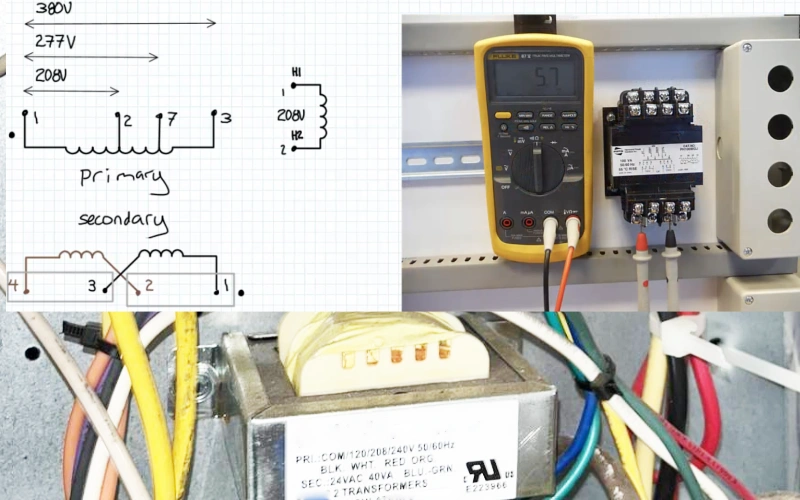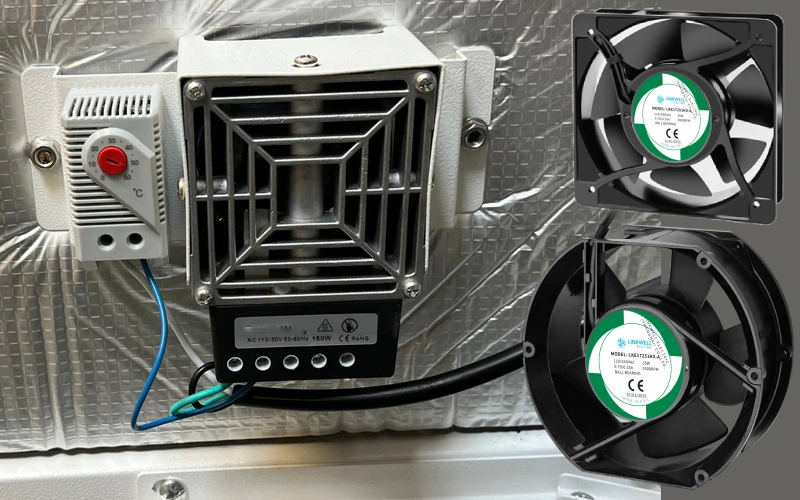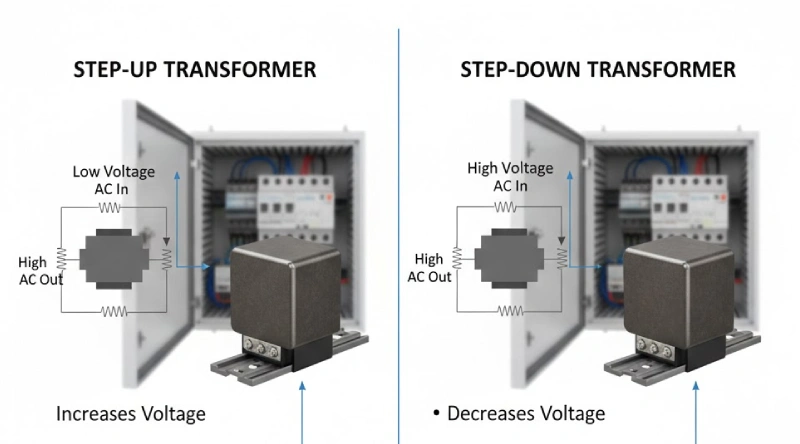Terminal blocks and wire nuts are both common electrical connectors used to join wires, yet they differ significantly in their application, design, and suitability for various projects. Understanding these distinctions is crucial for ensuring safe, reliable, and compliant electrical installations.
This comparison will delve into the fundamental characteristics of each, highlighting their respective advantages and limitations. Proper selection hinges on factors like desired permanence, ease of modification, and the specific environmental or space constraints of the wiring task.
What are Terminal Blocks
Recommended Terminal Blocks
Terminal blocks serve as specialized electrical connectors designed to securely and neatly terminate and connect multiple wires within an insulated housing. They consist of a conductive metal strip, often copper or brass, encased in a non-conductive material like plastic or ceramic.
Wires are typically fastened to these metal strips using screws, springs, or push-in mechanisms, facilitating organized electrical connections. This design not only streamlines wiring processes but also enhances safety by providing clear connection points and reducing the risk of accidental contact with live conductors.
What are Wire Nuts

Wire nuts, also known as twist-on connectors, are small, conical connectors used to splice two or more electrical wires together. They typically consist of a conically shaped plastic or nylon insulating shell with a coiled metallic spring insert inside.
To use them, stripped wires are inserted into the nut, which is then twisted, causing the internal spring to grip and securely twist the wires together, establishing an electrical connection and providing insulation. They are commonly employed in residential and light commercial wiring for quick and simple wire jointing.
Terminal Block vs Wire Nuts
Terminal blocks and wire nuts are both essential for joining wires, but they offer distinct advantages and disadvantages depending on the application. Understanding their core differences in design, functionality, and use cases is crucial for optimal electrical installations.
Design and Structure
Terminal blocks are modular connectors featuring an insulated body, typically plastic, housing a metal conductive part where wires are securely clamped, often with screws or spring mechanisms. They are designed for organized, semi-permanent connections and can accommodate multiple wires per block or be ganged together for numerous connections, providing a structured wiring solution.
Wire nuts, conversely, are simple, twist-on connectors made of an insulated plastic shell with a coiled spring inside. They are designed for quick, permanent splices of a limited number of wires, relying on the twisting action to mechanically and electrically secure the joint. Their compact, singular nature means they are used for individual wire bundles.
Application and Use Cases
Terminal blocks excel in industrial control panels, HVAC systems, and situations requiring organized, easily modifiable wiring. Their ability to connect multiple wires, facilitate troubleshooting, and provide clear termination points makes them ideal for complex circuits where future modifications or testing are anticipated.
Wire nuts are prevalent in residential and light commercial wiring for joining simple circuits like light fixtures, outlets, or appliance connections. They are perfect for situations where a quick, permanent splice is needed and space is often limited within junction boxes, offering a cost-effective solution for basic wiring joints.
Reusability and Modifiability
Terminal blocks offer excellent reusability and modifiability. Wires can be easily disconnected and reconnected without damaging the wire or the block, making them ideal for systems that require frequent testing, troubleshooting, or future expansion. This flexibility simplifies maintenance and upgrades.
Wire nuts, while not strictly single-use, are less reusable. The twisting action can deform wire strands, and repeatedly twisting and untwisting them can weaken the connection. They are best suited for permanent splices where modifications are infrequent, as repeated use can compromise connection integrity.
Wire Management and Organization
Terminal blocks significantly improve wire management by providing clearly labeled and neatly arranged connection points. This structured approach simplifies identification of wires, reduces clutter, and makes troubleshooting much more efficient, contributing to a professional and safer installation.
Wire nuts, while effective for splicing, offer limited wire management beyond the immediate splice. While they insulate the connection, they do not inherently organize wires or provide distinct termination points, which can lead to a less tidy and potentially harder-to-diagnose wiring setup in crowded boxes.
Safety and Reliability
Terminal blocks generally provide a more robust and secure connection, especially against vibration or physical disturbance, due to their strong clamping mechanisms. The insulated housing also offers superior protection against accidental contact, enhancing overall electrical safety in professional environments.
Wire nuts, when installed correctly, offer a safe and reliable connection for their intended use. However, incorrect installation (e.g., insufficient stripping, loose twisting) can lead to insecure connections, heat buildup, or potential fire hazards. Their reliability largely depends on proper application technique.
| Feature | Terminal Blocks | Wire Nuts |
| Design/Structure | Modular, insulated housing, metal clamps | Conical plastic shell with internal spring |
| Application | Industrial control, organized, re-configurable | Residential, simple, permanent splices |
| Reusability | Highly reusable, easy to modify | Less reusable, best for permanent splices |
| Wire Management | Excellent organization, clear termination points | Limited organization beyond splice point |
| Safety/Reliability | Robust, secure connection, enhanced insulation | Reliable when installed correctly, less robust against vibration |
How to Choose Terminal Blocks and Wire Nuts
Choosing between terminal blocks and wire nuts depends on the specific demands of your electrical project, balancing factors like the complexity of the wiring, the need for future modifications, environmental conditions, and cost. Carefully assessing each aspect will guide you to the most appropriate connector for safe and efficient wiring.
- Project Complexity & Organization: For intricate systems requiring numerous connections, clear labeling, and potential future modifications, opt for terminal blocks. Their structured design greatly simplifies wire management and troubleshooting.
- Connection Permanence & Reusability: If you need a permanent, one-time splice with minimal chance of future changes, wire nuts are often sufficient. For connections needing frequent testing, disconnection, or modification, terminal blocks offer superior reusability and ease of access.
- Environmental Factors: Consider exposure to vibration, moisture, or extreme temperatures. Terminal blocks often provide more robust, secure connections suitable for harsh industrial environments, whereas wire nuts are typically better suited for protected indoor applications.
- Space Constraints & Aesthetics: Wire nuts are compact and can be ideal for tight spaces within junction boxes. Terminal blocks, while larger, provide a much neater and more professional appearance, which can be critical in visible installations or control panels.
- Cost vs. Long-Term Value: Wire nuts are generally cheaper per connection upfront. However, for larger projects or those requiring high reliability and ease of maintenance over time, the long-term value and efficiency gained from terminal blocks often outweigh their higher initial cost.
Conclusion
Terminal blocks offer superior organization, reusability, and secure, permanent connections ideal for complex or industrial wiring. Wire nuts, while quick and cost-effective for simple splices, lack the same level of flexibility and can be less robust for long-term or high-vvibration applications.
The choice ultimately depends on the project’s specific demands for flexibility, space, and environmental resilience. For professional, organized, and scalable electrical systems, terminal blocks are generally the preferred solution.
For your wholesale terminal block needs, ensuring quality and variety for any project, consider Linkwell Electrics.






